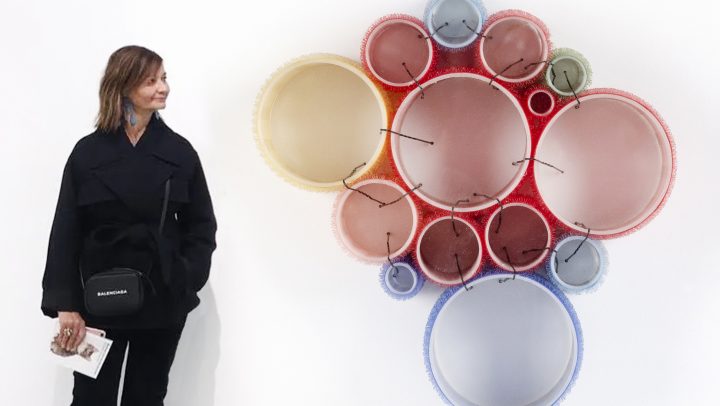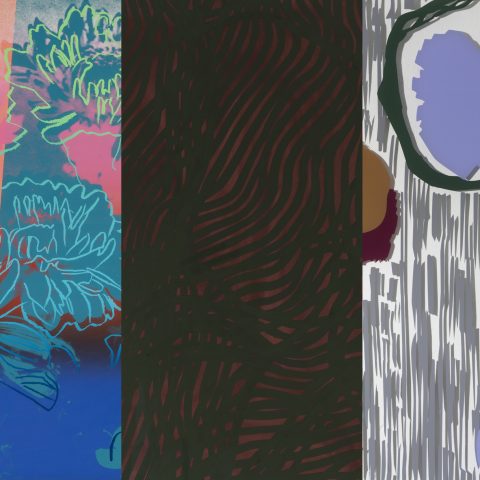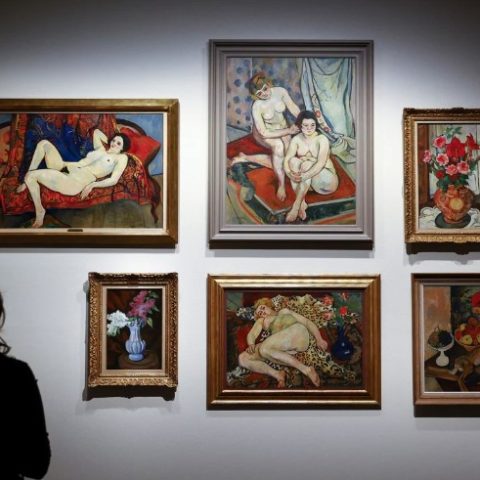One of the women artists who has had the greatest impact and repercussion on the art scene in recent decades arrives at Setdart with one of her iconic fetish-works. In addition to being part of large public collections, his creations, as controversial as they are seductive, have captivated the demanding sector of the international art market.

Curlers, makeup palettes, luxury handbags, shopping carts or cars… all of them have been the subject of the lens under which Sylvie Fleury transforms the nature of these objects to endow them with new and subliminal messages through which she challenges the values of today’s society.
In a historical context dominated by neoliberalism, the artist of Swiss origin, who became famous thanks to her work Shopping bags, burst onto the art scene in the mid-1990s. Fleury has built the foundations of his career around a fascinating reflection on consumerism through which, in addition to confronting us with the social reality of our time, he invites us to reconsider and question the dynamics and values that have governed this consumer society.
Under this premise, Fleury will appropriate those visual and aesthetic elements inherited from pop art, minimal and conceptual art to explore and delve into those codes that have cemented the image of femininity and masculinity in the light of consumerism. Fleury thus raises two lines of debate that intertwine in his work, demonstrating the incidence of the gender issue in relation to our consumption patterns and our unbridled materialistic desire.
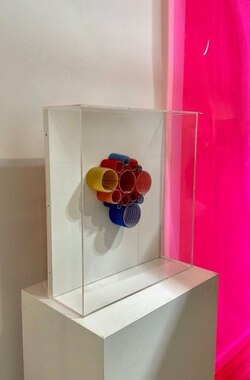
In this sense, and as in the case of the work under bidding, Fleury transfers those objects related to luxury, fashion and feminine beauty to the artistic context by focusing on the mechanisms that have contributed to the constant creation of new and superfluous needs, allowing the viewer to reevaluate the contemporary politics of gender, beauty and consumerism.
The elements she usually uses for his sculptures, performances, installations, three-dimensional paintings or ready-mades are usually prefabricated and domestic objects that, as in the case of the curlers and hairpins placed inside an urn, he envelops with an aura of harmony, beauty and sacredness that elevates the everyday and “vulgar” to the category of fetish.
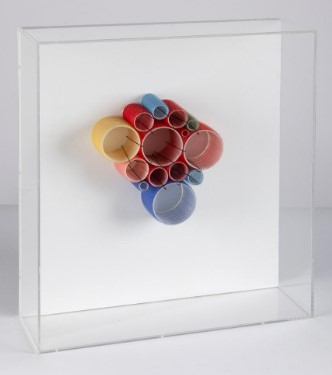
As in most of her works, the artist tries to evoke a multiplicity of gender stereotypes pointing out the horizon of their respective clichés and, as in the case of women, these are closely related to the obsessive cult of an almost unattainable canon of beauty that we have been made to obsessively desire through advertising that constantly bombards us.
Without losing his ironic touch and his well-known attraction for everything that surrounds the world of glamour, Fleury puts us in front of a mirror that returns us to our most frivolous and superficial image.

